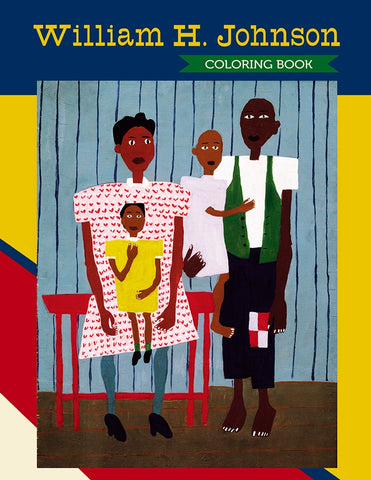Born in South Carolina to a poor African American family, William H. Johnson (1901–1970) moved to New York at age seventeen. He worked a variety of jobs to pay for an art education at the prestigious National Academy of Design, where he earned numerous awards and the respect of his teachers and fellow students.
Johnson spent the late 1920s in France, absorbing the lessons of modernism. As a result, his work became more expressive and emotional. During this same period, he met and fell in love with Danish artist Holcha Krake. The couple married and spent most of the 1930s in Scandinavia, where he painted portraits of fisherman, landscapes, and the spectacular mountains and fjords in the land of the midnight sun. By the late ’30s, the threat of war and Johnson’s need to “paint his own people" had convinced him to return to New York, where he created powerful scenes of African American life.
Johnson’s later life was plagued by illness, and he spent his final years in a Long Island hospital. After his death, his entire life’s work was almost disposed of to save storage fees but was rescued by friends at the last moment. Over a thousand artworks by Johnson are now part of the collection of the Smithsonian American Art Museum.
Soft cover book with staple binding.
48 pages with 22 images to color
Size: 8½ x 11 in.
Coloring pages are blank on the back so they can be cut out and displayed.
This item is published with the Smithsonian American Art Museum by PomegranateKids®, an imprint of Pomegranate Communications, and is CPSIA compliant.
Images
Sweet Adeline
Sowing
Flowers
Breakdown
Chalet in the Mountains
Lift Up Thy Voice and Sing
Ferry Boat Trip
Jitterbugs (I)
Street Life, Harlem
Art Class
Blind Musician
Li’L Sis
Going to Church
Wedding Couple
Farewell
Dockyard
Flower to Teacher
Three Little Children
Deep South
Folk Family
Still Life—Flowers
Children Dance

